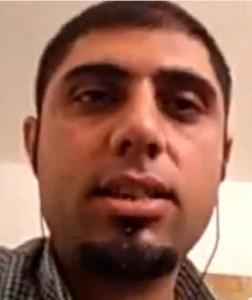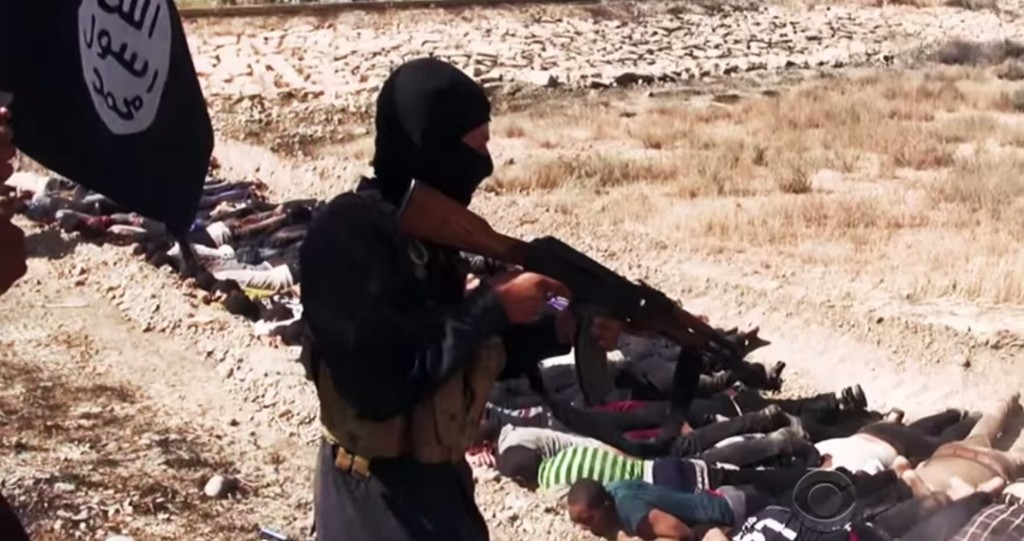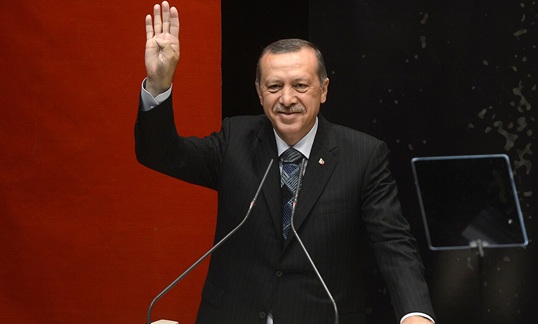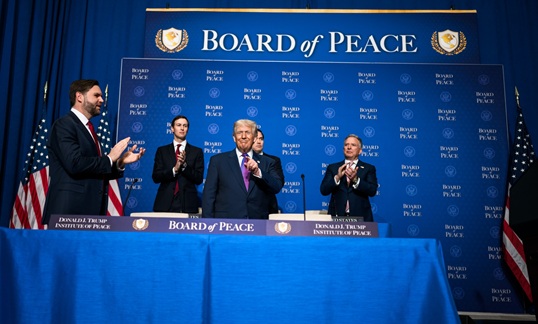The Kurds are fighting the barbarous and well-armed ISIS to protect themselves and other minorities. They need military aid, not kind words and sympathy.
Having successfully endured many dangers in the past, the Kurdish People today face an existential threat in the form of IS (formerly ISIS) • Despite being a partner of the West for many years, the latter continues to dither and equivocate while IS marches towards them, raping, enslaving and murdering as they advance • 'Mida' had a chance to talk with a Kurdish official and a resistance fighter about the lack of arms, the feeling of betrayal and their support for Israel's fight against Hamas • Their plea must be heard, and the sooner the better

While the world's attention is fixed on the plight of the Yezidis' murder at the hands of the IS (formerly ISIS), a far more numerous, yet no less embattled minority is desperately fighting the same enemy – the Kurds. Even more importantly, the Kurds have shown that IS is not unstoppable. According to information received by 'Mida', the Kurdish armed forces in Iraq – the Peshmerga – have succeeded in stopping IS' advance and even dealt it heavy casualties. It was a much needed respite.
"They're monsters, you know", said Ari Shixani (27), a Kurdish government official living in Irbil, capital of Iraqi Kurdistan. Ari agreed to speak to 'Mida' using his full name and picture in order to show the world just how dangerous the situation is for the Kurds. Along with his friend Musa (alias, full name on file), he recounts the atrocities IS has committed against the Kurds in the Sinjar region: "They killed 300 whole Kurdish families and kidnapped 500 girls." When I asked Ari what they intend to do with those 500 girls, he said: "they sell them as slaves."
The selling of girls, primarily for sexual purposes, is not new. Recently the Iraqi Red Crescent confirmed that there is a female slave market in the city of Nineveh, in which they are sold as if they were cattle. Behind the term "slave market" is another, less whitewashed term: Jihad al-Nikah, or sexual Holy War, expressed among other things through the mass rape of girls and women, designed to both humiliate and subjugate the defeated while the victors feel elated and amused. As part of this Jihad, IS has appealed through social networks to young girls in the west to couple them with IS fighters. To accomplish this, IS emphasizes the advantages of the family unit and the "honor" of giving birth to and raising a second generation of IS fighters. This campaign has apparently succeeded in attracting a number of Western girls, some as young as 15-16.
Ari and Musa emphasize that the subjugation of hundreds of Kurdish girls is a twisted version of IS' sexual Jihad. They prefer not to elaborate on the issue, and it's clear just how shocked they are by the very idea of the feelings of humiliation and shame awaiting hundreds of girls of their brethren. The status of a Kurdish woman is incomparably better than in the rest of the Muslim world. The Peshmerga recruits many women into its ranks, and many of the Kurds I've interacted with on the internet are openly proud of this fact, even stressing the similarity between them and the IDF on this score.
Supporting Israel Against Hamas

As to what's been happening to the residents of the Sinjar region, Ari and Musa replied that these were expelled to the mountains, but that the Peshmerga succeeded in extricating many of them and get them to safety. From our talk, it seems that the Kurds as a Muslim-Sunni army were not bothered in rescuing the Yezidi residents of the region, as the Peshmerga see themselves as defenders of the Kurds, without distinction of religion or residence. "We are all Kurds," they declare with no small amount of pride.
In light of the increasing danger to the residents of Iraqi Kurdistan, the region has received reinforcements in the form of thousands of Kurdish volunteers from Turkey, Syria and even Iran. One of these is Musa, a member of the Kurdish resistance in Iran who journeyed from the land of the Ayatollahs to Irbil with his personal weapon, an AK-47 and combat equipment of the kind the IDF used in the 1960s. He presents both with pride touched with a bit of naiveté: "I'm ready to fight IS."
When I ask Musa if he's not afraid to be interviewed by a member of "Sheytane Kuchak" – the little Satan in Farsi – he just laughs, stating: "I'm a member of the Democratic Party of Iranian Kurdistan," an opposition party which has been in conflict with the Shiite regime for decades. More than religious faith, Musa is interested in commitment to freedom and democracy – and he sees Israel as adhering to both. The two mention that they've been following events in Israel over the past few weeks, and that most of the Kurds – they use a figure of 60% – support Israel. If true, this estimate attests to widespread Kurdish support for Israel.
Indeed, it was hard not to notice male and female users with Kurdish sounding names openly defending Israel during the "social media wars" fought over Gaza operation, often openly arguing with their Arab compatriots and enduring heaps of abuse and insults. This was particularly prominent on the Israeli Foreign Ministry's Arabic facebook page and the establishment of an Israeli-Kurdistan page in which the two peoples give each other encouragement. Ari is not surprised: "Kurdistan does not support Israel or Hamas, it supports justice. Hamas didn't attack the Israeli army – it attacked the civilian population – and whoever attacks civilians is a terrorist and must be punished." Thus does Ari neatly summarize the morality behind Protective Edge in plain language – in this case, Arabic.
A Female Yezidi Member of the Iraqi Parliament bursts into tears over IS
We Don't Need "Humanitarian Aid" – We Need Weapons!
Thus, while the West continues to focus on Gaza with only some of its attention focused on the Yezidis in Iraq, the full scope of the massacres continues to escape the organizations who speak in the name of human rights. My interlocutors have a hard time hiding their disappointment from the double standard of the international community, which is not working to help the Kurds – "We're not fighting a militia or a terrorist organization, but a state for all intents and purposes," they emphasize. Indeed, this is an enemy threat on the scale of a state, which has taken control of 450 million dollars from the Mosul central bank, five large oil fields and a few divisions' worth of weapons and equipment.
According to Ari and Musa, IS has begun to absorb and integrate the equipment they captured. "They have tanks, hummers, sniper rifles," Ari says, "all American." The Kurds, by contrast, are armed with old Soviet equipment. The Kurds compensate for their inferior firepower with high morale and a readiness to fight for their homeland. According to them, the Peshmerga is attacking IS bases in Mosul and dealing them heavy casualties. Ari spoke of 250 dead and wounded at the Mosul hospital with IS starting a blood drive for the wounded. If the reports are true, then IS was unprepared for the attack or at least its ferocity.
Right now IS is busy strengthening its hold on the Sinjar region, which until recently served as a "security buffer" for Kurdistan. IS forces are already "knocking at the gates" of Kurdistan itself, and it's clear to everyone that the continued resistance of the Peshmerga means they could all be fighting for their lives. According to IS' stringent interpretation of Sharia, the very fact of Kurdish resistance to the "Islamic Caliphate" makes them murtaddun or apostates, that is Muslims who have recanted their faith. According to Muslim law, a murtadd, much like Salman Rushdie, is worse than a heretic, as the former already saw the Muslim light, yet nevertheless forsook it. There is only one punishment for such an offense – the death penalty. Ari and Musa take this just as seriously as one would imagine: "We will fight you," they declare. "We are not afraid of death," Ari says as he recounts one of the slogans of the Peshmerga, which means "those who turn their backs on death."

Alone in the Fight of Their Lives
The Kurd's readiness to sacrifice cannot hide their disappointment from the world's reaction to their predicament. "No-one's coming to our aid, we're alone," Ari said. Musa adds that it is inconceivable that the terrorists and murderers of IS are armed with top of the weaponry from America, the global bastion of democracy, while the Kurds who are committed to democracy and human rights have to face them with obsolete rifles and fighting spirit.
"We're sick of promises," they argue. If Israel declares its friendship with the Kurdish people, this is the time to express that friendship in deeds, not words. The Kurds need Israel and its help in these dark hours, and they hope that just as it did in the 1960s, Israel will do the same today. As to what exactly they need, the two have the same answer: "we need weapons," Ari says in a pleading tone and adds – "not money, not food, only weapons." Musa, sitting alongside, nods in agreement. "Tell it to the world, no one cares about us, I beg you to do something to make us heard." This time it was my turn to nod, and not just out of politeness.
The Kurds are now at the decisive moment in their fight with IS. Their main enemy is one of the richest armies in the world, a winning army on the move, an army being reinforced with new recruits on a daily basis. "This is a multi-national army," they explain. "There are Arabs, Afghans and even Europeans," – and now Israel's best friends in the region are in their sights.
Since the interview was conducted (August 7), many articles were published in the West on the fate of the Yezidis, warning of their impending genocide. In addition, American planes have begun bombing IS positions in the conflict areas with the Kurds. With the help of the bombings, the Peshmerga and the Kurdish-Turkish militia succeeded in repelling IS' offensive, and for the first time in this brief conflict – even reconquering territory seized by IS.
But we need to realize that these gains are only temporary. The Obama administration has no intention of opening up another Middle Eastern front, and the Kurds remain very much alone in their fight against IS. There's been some limited cooperation between the Iraqi Armed Forces and Kurdish forces, including food supplies to those expelled from the Sinjar region, but it's doubtful this will last long. The Kurds remain outgunned and perhaps eventually outnumbered by the ever growing might of the wealthy and well-equipped machine of IS.
It doesn't require much imagination to understand what will happen if IS wins: mass executions, wholesale brutalization of Kurdish women and the extinction of one of the most tolerant and ancient civilizations in the Middle East. In a word – genocide.
Perhaps, in light of the excessive coverage of Gaza, Israel should send forces there. At least then the enlightened world will truly give a damn – if only to damn the Israelis.
English translation by Avi Woolf.
To receive updates on new articles in English, join Mida on Facebook or Twitter or join our mailing list.





I think the Kurds need to being to coordinate first and forget about former boundaries of Turkish Iranian Iraqi and Syrian. I sure hope Israel and even Jordan will help stop this ugly menace from advancing.